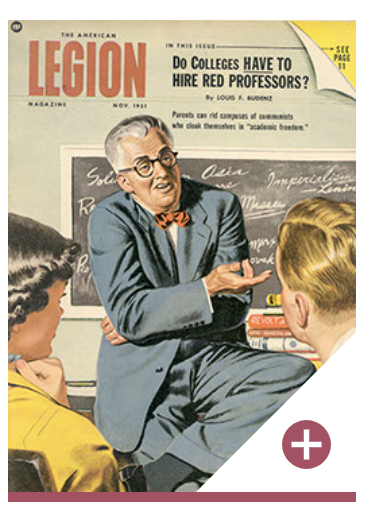Modern Education
/Thursday, Powerline’s Steven Hayward posted on the sh**t storm generated by an essay entitled “Is History History”, written by one James Sweet, president of the American Historical Association and professor of history at (of course) the University of Wisconsin-Madison.
Hayward:
“Prof. Sweet appears to be a conventional academic liberal, though not perhaps a deep leftist. His major field of interest is African history, and in particular the slave trade. And yet in his AHA essay, he dissents, however gently and respectfully, from the near-universal hosannahs for The 1619 Project:”
Whether or not historians believe that there is anything new in the New York Times project created by Nikole Hannah-Jones, The 1619 Project is a best-selling book that sits at the center of current controversies over how to teach American history. As journalism, the project is powerful and effective, but is it history? . . .
Yet as a historian of Africa and the African diaspora, I am troubled by the historical erasures and narrow politics that these narratives convey. . . If history is only those stories from the past that confirm current political positions, all manner of political hacks can claim historical expertise. . .
The present has been creeping up on our discipline for a long time. Doing history with integrity requires us to interpret elements of the past not through the optics of the present but within the worlds of our historical actors. Historical questions often emanate out of present concerns, but the past interrupts, challenges, and contradicts the present in unpredictable ways. History is not a heuristic tool for the articulation of an ideal imagined future. Rather, it is a way to study the messy, uneven process of change over time. When we foreshorten or shape history to justify rather than inform contemporary political positions, we not only undermine the discipline but threaten its very integrity.
Hayward:
“The whole essay is very much worth reading, despite his genuflections to the left that he makes throughout, no doubt intended as a measure of self protection. It didn’t work. You can imagine how this mild bit of heresy is going down on Twitter. The mob has been summoned to pick up their pitchforks, and send denunciations for printing this “appalling” article to the council of the AHA.”
[After posting several of the tweets generated by “appalled history professors, Hayward continues]
“Periodically I hear from parents who says they have a child interested in studying history, and can I recommend a college with a good department. After Hillsdale and one or two other places, the answer is: No, there are none. Don’t do it. Academic history is now worse than a waste of time nearly everywhere.
“Cue Prof. Sweet’s apology tour (and perhaps the removal of the article) in three, two. . .”
Hayward’’s prediction came true in less than 24 hours
Message from James H. Sweet (August 2022)
Aug 19, 2022 –
My September Perspectives on History column has generated anger and dismay among many of our colleagues and members. I take full responsibility that it did not convey what I intended and for the harm that it has caused. I had hoped to open a conversation on how we “do” history in our current politically charged environment. Instead, I foreclosed this conversation for many members, causing harm to colleagues, the discipline, and the Association.
A president’s monthly column, one of the privileges of the elected office, provides a megaphone to the membership and the discipline. The views and opinions expressed in that column are not those of the Association. If my ham-fisted attempt at provocation has proven anything, it is that the AHA membership is as vocal and robust as ever. If anyone has criticisms that they have been reluctant or unable to post publicly, please feel free to contact me directly.
I sincerely regret the way I have alienated some of my Black colleagues and friends. I am deeply sorry. In my clumsy efforts to draw attention to methodological flaws in teleological presentism, I left the impression that questions posed from absence, grief, memory, and resilience somehow matter less than those posed from positions of power. This absolutely is not true. It wasn’t my intention to leave that impression, but my provocation completely missed the mark.
Once again, I apologize for the damage I have caused to my fellow historians, the discipline, and the AHA. I hope to redeem myself in future conversations with you all. I’m listening and learning.
Hayward:
“Pathetic. There was nothing—not a single thing—wrong with Prof. Sweet’s article, and he knows it. His craven capitulation to a twitter mob tells you all you need to know about the cowardly character of most academics today, especially moderate liberal academics. They deserve their fate. History departments that behave this way deserve to lose all their students, and have their departments disbanded.”
What Hayward says about history departments could equally be applied to all liberal arts departments these days. They serve no educational purpose, and exist solely to provide jobs for otherwise unemployable, professional offendees to indoctrinate the gullible children of unsuspecting parents. Burn ‘em down.

